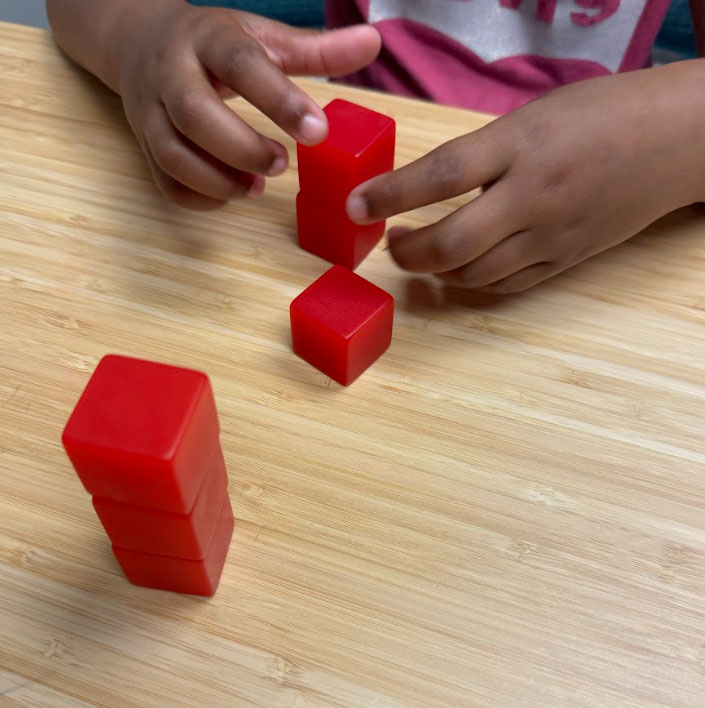Interpreting Results from ADHD Assessments
When students struggle in the classroom, it can affect their overall development. Your child might have difficulties paying attention during lessons, preventing them from understanding the material and progressing alongside their classmates. This can affect their social and mental growth as well as academic achievements.
Your child may be experiencing attention deficit hyperactivity disorder (ADHD). ADHD assessments are a vital resource in diagnosing students and helping identify ways for them to thrive. When you receive ADHD assessment results, you might wonder what they mean. Learn about the ADHD rating scales, how to interpret the results, and the next steps you should take.
ADHD Rating Scales: How It Works
Not all individuals with ADHD have the same experience. As such, there isn’t one scoring system for helping diagnose ADHD. Instead, psychologists use a range of rating scales.
Overall, psychologists look at characteristics of typical ADHD-related behaviors. These include inattentiveness, hyperactivity, and impulsivity. Consider how these differ:
- Inattentiveness: Your child struggles to pay attention and complete tasks. They might have trouble following instructions or listening during conversations.
- Hyperactivity: Your child has trouble sitting still. You might describe this behavior as fidgety. It may also coincide with talking a lot.
- Impulsivity: Your child seemingly acts or speaks without thinking. They might speak over others or resist waiting their turn.
Most cases of ADHD are combined, meaning they feature aspects of all three characteristics. What’s more, symptoms often manifest differently between boys and girls. Boys are more likely to present with hyperactivity and impulsivity, but girls are more likely to show signs of inattentiveness, such as daydreaming or zoning out. Recognizing these differences is essential, as ADHD in girls may be overlooked and categorized as laziness.
Given these factors, multiple rating scales may contribute to a more accurate diagnosis. Behavior Assessment Scale for Children, Third Edition (BASC-3) is the most widely used behavior rating scale. Other common rating scales for children include:
- Child Behavior Checklist (CBCL)
- Conners Comprehensive Behavior Rating Scales (CBRS)
- National Institute for Children’s Health Quality (NICHQ) Vanderbilt Assessment Scale
- Behavior Rating Inventory of Executive Function (BRIEF-2)
In addition to these rating scales, direct testing can also help identify signs of ADHD. Direct measures differ depending on the child’s age and the reason for referral but may include executive functioning, planning, attention, and inhibition. Examples of direct testing methods include:
- Connors Continuous Performance Test (CPT-3)
- Delis-Kaplan Executive Function System (D-KEFS)
- Developmental Neuropsychological Assessment (NEPSY-II)
- Test of Everyday Attention for Children (TEA-Ch 2)
Interpreting ADHD Test Results
ADHD assessment results will differ depending on the test and the child’s age. In general, test questions ask the taker to rate how often the child displays certain behaviors. Rating scales typically range from 0 to 3 or 4. 0 means the child never displays the behavior, while 3 or 4 means very often.
Some tests will take ratings for individual questions and add them for an overall score. Others go by the number of behaviors that suggest ADHD. For instance, the test might indicate that a high rating for a specific number of behaviors suggests the child has ADHD.
Let’s look at two common scoring systems and how the results can differ.
Behavior Assessment Scale for Children, Third Edition (BASC-3)
The BASC-3 provides a comprehensive look into a child’s behavior. What makes this assessment so effective is that it gathers data from three sources – the parent(s), teachers, and the student. The parent and teacher portions measure behaviors in preschool/school and home/community settings. The self-report portion provides insights into a child’s or young adult’s thoughts and emotions. This approach delivers a more complete understanding of a student’s behavior and possible indications of ADHD.
NICHQ Vanderbilt Assessment Scale
Many doctors use the NICHQ Vanderbilt Assessment Scale for ADHD diagnoses in children between 5 and 12. Parents/caregivers and teachers receive different questionnaires, with the form for parents/caregivers including a section on conduct and antisocial tendencies and the form for teachers having an additional section on learning disabilities.
Some questions revolve around behaviors of inattention and hyperactivity. Your child must score 2 or 3 on six of the nine questions to meet the criteria for ADHD as outlined in the Diagnostic and Statistical Manual of Mental Disorders (DSM-5). This test also features a performance component. If your child scores 4 or higher on two questions, or 5 on one question, the doctor may begin an ADHD diagnosis.
Assessment Results and ADHD Diagnosis
You can find ADHD assessments online. However, only a qualified psychologist can provide a complete ADHD diagnosis. If results indicate ADHD, psychologists will discuss possible treatment options. Recommended treatments depend on the specific test results and your child’s needs. Common treatments involve:
- Special education
- Counseling
- Behavioral therapy
- Medication
Outside of these treatment approaches, psychologists might also suggest lifestyle changes. Since this involves effort on your part, the doctor may discuss training for parents or caregivers to better support the child. Some steps you can take post-ADHD diagnosis include:
- Ensure your child keeps up with their treatment plan: Follow doctor’s orders regarding when to administer medicine and ensure the correct dosage. Attend all therapy or counseling sessions.
- Understand your child’s unique situation: ADHD assessment results can reveal specific behaviors your child exhibits. Consider guidance from therapists and counselors on how to help your child navigate symptoms.
- Involve your child in discussions about their diagnosis: Not all children have the same reaction to an ADHD diagnosis. Some are frustrated, while others feel relief since it can explain their struggles. No matter how your child reacts, create space for them to share. Let them guide discussions, especially as they get older.
- Coordinate with the school: Contact your child’s school to ask about accommodations. Meet with teachers or special education faculty to develop strategies to support your child.
In-Depth ADHD Assessments at Measuring Minds
Understanding ADHD assessment results is crucial for helping you and your child navigate these new circumstances. It starts with psycho-educational evaluations from a reliable and knowledgeable provider, and families find these at Measuring Minds. We offer comprehensive psycho-educational evaluations for various needs, including assessing ADHD.
Our ADHD assessments measure specific types of attention, such as selective and sustained attention. These assessments also involve intellectual and academic testing. Measuring Minds prioritizes efficiency, pre-planning our evaluations while ensuring flexibility to change the direction of evaluations if necessary. Measuring Minds also has one of the few practitioners in the area to use direct testing measures alongside rating scales.
We hold appointments on the weekends to accommodate your busy schedule and strive to conduct evaluations the same week as intake calls. We provide accurate results quickly so you can plan for the next steps.
As parents of school-aged children, our team understands the difficulty of seeing your child struggle academically. Our ADHD assessments are the first step toward accurate diagnoses and treatment plans. Help your child thrive – families in South Florida can contact Measuring Minds for questions about ADHD assessments and other child development services today.



